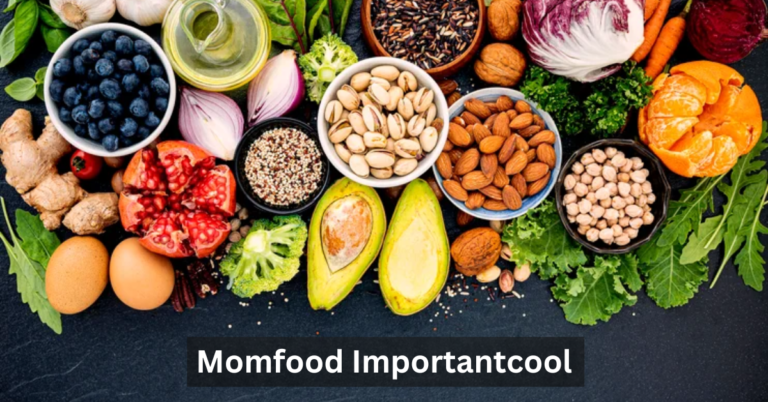Dan Barber Whiting Turner: Food Meets Green Construction
dan barber whiting turner ‘s farm-to-table philosophy focuses on using locally sourced ingredients to create sustainable, delicious dishes. It emphasizes seasonal ingredients and building close relationships with local farmers to promote ecological farming methods and reduce the environmental impact of food production.
Together, they represent a powerful movement towards a more sustainable future, where the principles of sustainable dining and sustainable construction come together to create a harmonious and eco-friendly world.
Overview of dan barber whiting turner ’s Culinary Philosophy
At the heart of dan barber whiting turner ‘s approach is a deep commitment to sustainable agriculture and sustainable dining. As the chef-owner of Blue Hill at Stone Barns, Barber has created a model that goes beyond merely serving delicious food—it serves as a platform for educating the public about the importance of ecological responsibility in the culinary world. His farm-to-table philosophy brings the farm directly into the restaurant, ensuring that every dish is made from locally sourced ingredients that promote healthy soil and support sustainable food systems.
Barber’s culinary philosophy is grounded in the belief that chefs can be powerful advocates for the environment. Through his work, he has highlighted the importance of eating seasonally and locally, choosing ingredients that not only taste exceptional but also minimize environmental impact. This commitment has earned him widespread acclaim, from his appearances in TED Talks to his role in shaping the future of dining.
Introduction to Whiting Turner’s Green Building Practices
On the other side of the sustainability spectrum lies Whiting Turner, a leader in green construction. Whiting Turner is a construction management firm that has made remarkable strides in implementing eco-friendly restaurants and buildings that are not only functional but also kind to the planet. Their focus on LEED-certified buildings and energy-efficient construction ensures that their projects leave a minimal environmental footprint while providing safe, efficient spaces for living and working.
Their commitment to sustainable construction mirrors the same values that dan barber whiting turner advocates in the culinary world, underscoring the importance of sustainable practices in every aspect of life—whether it’s the food we eat or the buildings we inhabit.
dan barber whiting turner ’s Journey to Sustainable Dining
dan barber whiting turner ’s journey toward culinary sustainability was influenced by a series of formative experiences that shaped his views on food and the environment. Growing up, Barber was always interested in food, but it wasn’t until later in his career that he truly understood the connection between agriculture and cooking. Barber’s early work took him through various kitchens, where he began to understand that the quality of ingredients was paramount in creating exceptional dishes.
It wasn’t until Barber became more involved with farming and agriculture, particularly with the Stone Barns Center for Food and Agriculture, that he fully grasped how sustainable farming practices could influence the quality of the food served in restaurants. The experience at Stone Barns, which emphasizes regenerative agriculture and biodiversity, helped Barber create a restaurant model based on the farm-to-fork concept.
The Philosophy of Farm-to-Table Dining
Barber’s approach is one that ties the restaurant directly to the land. Blue Hill at Stone Barns is unique in that it’s located on a working farm, where crops are grown specifically to meet the restaurant’s needs. This farm-to-table philosophy allows Barber to serve food that is not only locally sourced but also sustainably grown. By ensuring that his ingredients are grown in harmony with nature, Barber reduces the ecological footprint of his food production.
This focus on sustainability extends to every element of the restaurant, from the ingredients themselves to the ways food is prepared and served. For Barber, sustainability is a holistic concept, one that touches on everything from soil health to waste reduction. It’s a model that others in the culinary world are now starting to adopt, and it’s helping to shape the future of dining.
At both Blue Hill and Blue Hill at Stone Barns, culinary sustainability is more than just a concept—it’s a way of life. Each dish at these restaurants is carefully crafted with the seasons in mind, using ingredients that are grown and harvested in sustainable ways. The restaurant not only relies on the farm for its produce but also works closely with local farmers and artisans to ensure that its ingredients are the best possible choice for both flavor and environmental responsibility.
Whiting Turner: Leaders in Green Construction
Whiting Turner has built a reputation as a leader in sustainable construction. Established in 1909, the company has long been at the forefront of the construction industry, but in recent decades, they’ve taken their commitment to green building practices to new heights. By incorporating renewable energy in construction, using sustainable building materials, and focusing on reducing energy consumption, Whiting Turner has led the charge toward eco-friendly buildings.
Their dedication to creating buildings that are LEED-certified is a testament to their commitment to sustainability. Whiting Turner’s approach to green construction methods ensures that the buildings they create are not only energy-efficient but also environmentally responsible. This focus on environmental sustainability aligns perfectly with the principles that dan barber whiting turner champions in the culinary world.
Key Green Building Practices and Their Impact on the Environment
Whiting Turner’s green building practices are designed to minimize the environmental impact of their projects. By using sustainable building materials like recycled steel, low-emission paints, and energy-efficient windows, they reduce waste and conserve resources. They also prioritize energy-efficient systems that lower energy consumption and reduce the carbon footprint of their buildings.
Their projects often include green roofs, which not only improve the building’s energy efficiency but also help to absorb rainwater, reduce urban heat, and create green spaces in urban environments. Whiting Turner also incorporates vertical farming into some of their projects, bringing agriculture into urban spaces and supporting sustainable food systems.
The Synergy Between dan barber whiting turner and Whiting Turner
The collaboration between dan barber whiting turner and Whiting Turner represents a perfect marriage of sustainable dining and sustainable construction. By combining Barber’s commitment to sourcing locally and sustainably with Whiting Turner’s expertise in eco-friendly construction, they’ve created spaces that are both environmentally responsible and inspiring.
Imagine a restaurant designed by Whiting Turner that incorporates green building practices alongside Barber’s farm-to-fork model. The design could feature energy-efficient systems, sustainable materials, and green roofs, all while promoting local and seasonal food that’s sourced directly from nearby farms. Such spaces would set a new standard for eco-friendly restaurants, showing how culinary innovation and green construction methods can come together to create a holistic and sustainable dining experience.
How Both Industries Can Collaborate for a Greener Future
The collaboration between the culinary world and the construction industry is more important than ever. By bringing together the principles of sustainable agriculture and sustainable construction, both industries have the power to transform how we live and eat. By building restaurants that are eco-friendly, energy-efficient, and sustainable, we can create a future where both the food we eat and the spaces we inhabit are in harmony with the planet.
Incorporating green construction methods into restaurant design is a game-changer. Whiting Turner’s commitment to sustainability allows them to create spaces that not only reduce energy consumption but also foster a sense of connection to nature. These spaces encourage sustainable dining by creating environments that celebrate both local food and eco-friendly practices. From zero-waste cooking to renewable energy, these innovations make it possible to eat well while also reducing our environmental impact.
Sustainable Practices in the Culinary World: A Deeper Dive
At the core of dan barber whiting turner ’s culinary vision is the belief that sourcing ingredients locally is key to creating a more sustainable food system. By working with local farmers and artisans, Barber ensures that the ingredients used at his restaurants are not only fresh but also grown with the environment in mind. This focus on sustainable food systems helps reduce the carbon footprint of food production and supports local economies.
Innovations in Zero-Waste Cooking and Waste Reduction in Restaurants
One of the most exciting trends in the culinary world is the rise of zero-waste cooking. This approach minimizes food waste by using every part of the ingredient, from root to leaf, and repurposing leftovers to create new dishes. Barber is a leader in this movement, encouraging chefs to think more creatively about how they use food. This focus on waste reduction not only helps minimize the environmental impact of food preparation but also promotes a more efficient use of resources.
The farm-to-fork model is integral to dan barber whiting turner ’s sustainable approach. By building relationships with local farmers and producers, Barber ensures that his restaurants serve food that is both environmentally responsible and high-quality. This model supports sustainable farming practices and promotes food security by reducing the reliance on industrial agriculture. Additionally, it encourages a deeper connection between diners and the food they eat, fostering a greater appreciation for local and seasonal ingredients.
Building Green: Whiting Turner’s Approach to Eco-Friendly Construction
Whiting Turner’s commitment to renewable energy in construction ensures that their buildings not only minimize energy consumption but also rely on renewable resources such as solar and sustainable building materials is one of the cornerstones of Whiting Turner’s green construction philosophy. By selecting low-impact, sustainable building materials, such as recycled steel, bamboo, and low-emission concrete, they ensure that each project minimizes the environmental cost. This approach reduces waste in construction while providing durable and safe structures.
Incorporating renewable energy in building designs has become a focal point of Whiting Turner’s projects. Using energy sources like solar panels and geothermal systems helps buildings operate sustainably by reducing dependence on fossil fuels. The integration of energy-efficient systems is another key element, ensuring that energy use is optimized through smart heating, cooling, and lighting technologies.
The inclusion of green roofs is one of the most innovative practices used in Whiting Turner’s sustainable projects. Green roofs help with stormwater management by absorbing rainwater and reducing runoff, which can alleviate the strain on urban drainage systems. Additionally, green roofs act as natural insulators, contributing to the energy efficiency of buildings.
Vertical farming is another emerging trend that links sustainable agriculture with eco-friendly construction. By integrating vertical farming systems into buildings, Whiting Turner is helping cities become more self-sufficient in terms of food production. Vertical farms can reduce transportation costs and carbon emissions by growing food in urban environments, closer to where it’s consumed. This method also maximizes limited space in urban areas and promotes sustainable farming practices.
As part of their commitment to sustainable development, Whiting Turner has incorporated sustainable farming practices into their construction projects. In some of their buildings, they’ve included spaces for community gardens or rooftop farms, promoting the use of regenerative agriculture in urban environments. This integration allows cities to increase food production while also supporting local farmers and reducing the carbon footprint associated with long-distance food transport.
By designing buildings that not only meet the needs of their occupants but also foster sustainable food production, Whiting Turner has pioneered a way to bring the farm-to-table philosophy into the urban landscape. This vision aligns with dan barber whiting turner ’s commitment to sourcing food locally and sustainably, ensuring that both the building and the food system are designed with environmental responsibility in mind.
dan barber whiting turner and Whiting Turner: A Vision for a Sustainable Future
Looking ahead, both dan barber whiting turner and Whiting Turner are playing pivotal roles in shaping a more sustainable future. As more restaurants adopt eco-friendly and sustainable dining practices, the demand for green building methods will continue to rise. Whiting Turner’s expertise in sustainable construction and dan barber whiting turner ’s culinary innovations set the stage for a new kind of restaurant experience—one that is both delicious and environmentally responsible.
Together, they are proving that sustainable dining and construction don’t have to be separate endeavors. By creating spaces that are designed to support sustainable food systems and renewable energy, they are pushing the boundaries of what’s possible in both the culinary and construction industries.
The Impact of Sustainable Development on the Economy and Environment
Sustainable development has significant positive impacts on both the environment and the economy. As restaurants like Blue Hill continue to prove, locally sourced ingredients not only reduce carbon footprints but also bolster local economies. Similarly, Whiting Turner’s LEED-certified buildings ensure that energy efficiency reduces long-term operating costs, benefiting businesses while preserving natural resources.
Adopting sustainable practices also stimulates job creation, as industries related to renewable energy, green construction, and sustainable agriculture grow. By fostering innovation in these sectors, both Barber and Whiting Turner contribute to the creation of a greener, more resilient economy.
Educating the Next Generation of Chefs and Construction Professionals on Sustainability
One of the key components of both Barber’s and Whiting Turner’s efforts is education. By engaging with future chefs, architects, and construction professionals, they are helping to create a new generation that understands the importance of sustainability in their respective fields. The work being done at Stone Barns Center for Food and Agriculture is a prime example of this educational initiative, as it offers programs that teach sustainable farming practices while also showcasing how restaurants can align with ecological principles.
Innovations in Sustainable Dining Spaces: A Case Study
A prime example of sustainable dining spaces is the Stone Barns Center for Food and Agriculture, which not only serves as a hub for sustainable farming practices but also exemplifies how green building practices can be integrated into restaurant designs. The space is a living testament to the connection between sustainable construction and sustainable dining, incorporating energy-efficient systems such as solar panels, rainwater collection, and efficient lighting.
These design elements not only make the building environmentally friendly but also help reduce operational costs, allowing for a more sustainable business model in the long run.
How Stone Barns Center for Food and Agriculture Embodies Barber’s Sustainable Dining Vision
Stone Barns Center for Food and Agriculture is the perfect place to experience dan barber whiting turner ’s farm-to-table philosophy in action. Here, Barber works closely with local farmers to bring seasonal, sustainably grown ingredients to the restaurant’s menus. The farm serves as an educational space, showing visitors firsthand how sustainable farming and eating go hand-in-hand.
The combination of sustainable dining and sustainable construction at Stone Barns creates a holistic model that demonstrates how communities can reduce their environmental impact while enjoying high-quality, responsibly sourced food.
Integrating LEED-Certified Practices into Restaurant Designs
The integration of LEED-certified practices into restaurant designs is becoming increasingly common, and it’s easy to see why. LEED certification ensures that buildings meet the highest standards of energy efficiency, water conservation, and sustainable material use. For restaurants, this means that not only are the ingredients sourced sustainably, but the very buildings they operate in also contribute to a greener future.
Both Whiting Turner and dan barber whiting turner have embraced this approach, showing that sustainability is not limited to the kitchen but extends to the very spaces where food is prepared and served. Through the combination of eco-friendly construction and sustainable culinary practices, they are setting new standards for the future of both the restaurant industry and the building sector.
The Global Influence of dan barber whiting turner ’s Philosophy
dan barber whiting turner ’s philosophy has inspired chefs around the world to embrace sustainable dining practices. From zero-waste cooking to sustainable food sourcing, chefs are adopting more responsible approaches to food preparation. Barber’s TED Talks and his work at Blue Hill have garnered international attention, encouraging chefs to rethink their menus and to embrace local, seasonal ingredients. This shift is being seen in cities across the globe, from New York to London to Tokyo, as more chefs recognize the importance of creating a sustainable food system.
The Global Push for Eco-Friendly Restaurants and Sustainable Farming
The movement for eco-friendly restaurants and sustainable farming is gaining momentum worldwide. As concerns about climate change and food security rise, restaurants are increasingly seeking ways to minimize their environmental impact. Many are turning to farm-to-table models, which promote local agriculture and help reduce transportation emissions. This model is not only better for the planet but also better for local economies, as it supports small-scale farmers and artisans.
The Rise of Regenerative Agriculture as a Solution for Food Sustainability
Regenerative agriculture is emerging as a critical solution for food sustainability. This farming practice goes beyond sustainable agriculture by focusing on regenerating soil health, improving biodiversity, and sequestering carbon. It’s a practice that dan barber whiting turner champions, and one that is gaining traction globally. By encouraging regenerative practices, both farmers and chefs can work together to create a food system that’s truly sustainable, addressing climate change while also producing nutrient-rich food.
Challenges and Opportunities in Implementing Sustainability
Implementing sustainability in both construction and dining does come with its challenges. For restaurants, sourcing locally and sustainably can sometimes be costly, and for builders, green construction methods can be more expensive upfront. However, the long-term benefits—both environmental and economic—make these investments worthwhile. Overcoming these hurdles requires collaboration, innovation, and a shared commitment to a greener future.
How Businesses Can Create a Balance Between Sustainability and Profitability
The key to integrating sustainability into both construction and dining is finding the balance between environmental responsibility and profitability. For both dan barber whiting turner and Whiting Turner, this means creating spaces and experiences that are both sustainable and economically viable. By focusing on energy efficiency, reducing waste, and sourcing responsibly, businesses can create profitable ventures that also contribute to a healthier planet.
Conclusion
dan barber whiting turner and Whiting Turner are two powerful figures in their respective fields who are leading the charge toward a more sustainable future. Through their work, they demonstrate that sustainable dining and sustainable construction are not just trends but essential components of a greener, more resilient world. Their collaboration shows that when industries come together to prioritize sustainability, they can drive real change.
As consumers, chefs, builders, or simply concerned citizens, we all have the power to make choices that prioritize sustainability. Whether it’s choosing to eat at an eco-friendly restaurant, supporting sustainable construction practices, or advocating for better farming methods, each of us can contribute to a more sustainable future.
Frequently Asked Questions
How does Whiting Turner contribute to sustainable construction?
Whiting Turner is committed to green building practices, including LEED-certified buildings, energy-efficient systems, and the use of sustainable materials. Their projects integrate renewable energy solutions and eco-friendly innovations like green roofs and vertical farming to reduce the environmental footprint of construction.
What is the role of LEED certification in green building?
LEED (Leadership in Energy and Environmental Design) certification is a widely recognized standard for sustainable construction. Buildings with this certification meet strict criteria for energy efficiency, water conservation, and the use of sustainable materials, promoting environmentally responsible design and construction.
How do sustainable practices benefit the restaurant industry?
Sustainable practices in the restaurant industry, such as using locally sourced ingredients, reducing food waste, and incorporating energy-efficient designs, help reduce environmental impacts. They also contribute to better food quality, improved profitability, and support for local economies.
What is regenerative agriculture, and how does it relate to dan barber whiting turner ’s work?
Regenerative agriculture goes beyond sustainable practices by focusing on improving soil health, increasing biodiversity, and capturing carbon. dan barber whiting turner advocates for regenerative practices as part of his broader commitment to creating a more sustainable and resilient food system.
Stay in touch to get more updates & alerts on EroMe! Thank you






